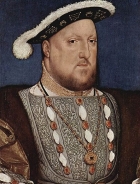Developing enquiries
Developing effective historical enquiries is not as easy as it might at first seem. Firstly, a successful enquiry depends upon the teacher having sufficient knowledge of the topic and the historical issues and controversies that surround it. In the teaching sequence, what do I include and what do I leave out? Secondly, the enquiry question must then be framed in such a way that it allows children to hypothesise, to grapple with an issue or controversy, the handle and evaluate evidence, to ask questions of their own and to make judgments. In this section, you will find advice and guidance to help you to plan and carry out effective historical enquiries with your pupils.
Sort by:
Date (Newest first) | Title A-Z
Show:
All |
Articles |
Podcasts |
Multipage Articles
-

Towards inclusion: A study of significant figures and disability within the national curriculum
ArticleClick to view -

Using classic fiction to support the study of childhood in Victorian times
ArticleClick to view -

Using the back cover image: Mummified cat
ArticleClick to view -

Using the back cover image: Sandbach Crosses - an Anglo-Saxon market cross
ArticleClick to view -

Viking and Anglo-Saxon struggle for the kingdom of England
ArticleClick to view -

What do we mean by Big Picture History?
ArticleClick to view -

What is good history? The criteria for effective primary school history
ArticleClick to view -

What made Cleopatra so special?
ArticleClick to view -

Why stories?
ArticleClick to view -

William Brookes and the Olympic Games
ArticleClick to view

